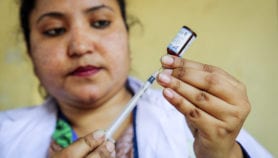By: Natasha McDowell
Send to a friend
The details you provide on this page will not be used to send unsolicited email, and will not be sold to a 3rd party. See privacy policy.
A report initiated by the United Nations Development Programme (UNDP) has urged governments to negotiate the replacement of the World Trade Organisation’s (WTO) agreement on intellectual property with an alternative system fairer to developing countries.
The Trade-Related Aspects of Intellectual Property Rights (TRIPS) agreement requires all WTO members to set minimum standards of legal protection and enforcement for intellectual property, such as patents on medicines. But the agreement has attracted significant controversy since it came into effect in 1995, with many arguing that the rules are detrimental to the interests of developing countries.
This criticism is set out in detail in a report published last month — Making Global Trade Work for People — that was commissioned by the UNDP with the support of the Rockefeller Brothers Fund, Rockefeller Foundation, Ford Foundation, Heinrich Böll Foundation, and Wallace Global Fund.
An international team of experts, lead by Kamal Malhotra, a UNDP senior advisor on ‘inclusive globalisation’, conclude that the relevance of TRIPS is highly questionable for large parts of the developing world.
“Countries at low levels of human and technological capability cannot benefit significantly from TRIPS,” the report says. “Developing countries are not likely to be even at least as well off under TRIPS as they would be outside it”.
The authors say that the experience of developed countries shows that strong patents follow industrial development rather than lead it. The conclusion it draws is that weak levels of intellectual property protection are more likely to encourage economic development in poor countries than strong levels.
A fairer system, they suggest, might be one of an intellectual property ladder where “more stringent laws apply to countries at higher levels of income and technology use”. As they develop, countries would progress from one level of the ladder to the next.
Graham Dutfield of the Queen Mary Intellectual Property Research Institute in London, United Kingdom, says that it is “quite brave” of UNDP to publish the book, “as it goes further in criticising TRIPS than any report published to date by an intergovernmental organisation”.
“Rather than limiting discussions to how to make TRIPS more favourable to developing countries, it questions whether TRIPS should exist at all,” he says. But Dutfield also questions the impact the report may have. “By being so bold, fairly or unfairly, they open themselves to criticism for being naïve and unrealistic,” he says.
One weakness of the report, says Dutfield, is that its analysis and prescriptions do not take into account significant variations between developing countries as much as they should. It is also rather simplistic at times.
“The authors, for example, propose that should there be separate regimes for ‘collective’ and ‘individual’ rights. In doing so, they imply that intellectual property rights are inherently individualistic, whereas collective rights are more appropriate for developing countries,” he says. “Such a sharp distinction does not exist.”
Critics of the TRIPS agreement say that many developing countries have been pressured into signing up to the agreement and that the promised benefits, such as the freeing-up of trade in textiles and agriculture, have not been forthcoming.
See also:
Making Global Trade Work for People
World Trade Organisation: TRIPS
UK Commission on Intellectual Property Rights













